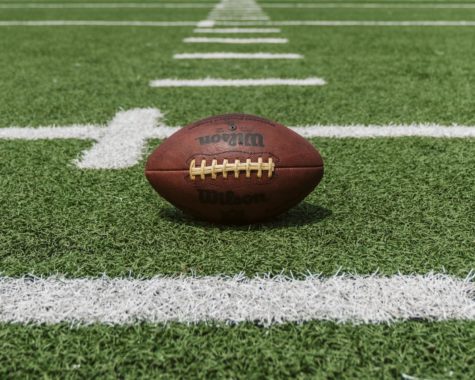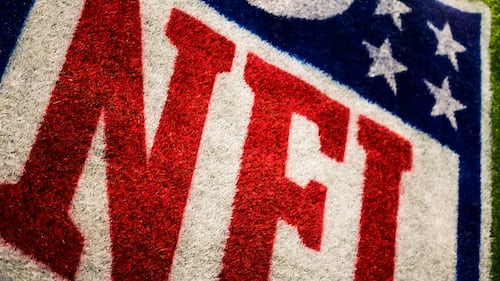Football: Controversy or Passion?
October 10, 2014
On October 7th, 600 people were crowding in and around St. John the Baptist’s Church in Wading River, grieving as they prepared to say goodbye to 16 year old, Tom Cutinella, a beloved student athlete who died of a head injury on the football field six days prior. Cutinella was among three high school football players who received fatal head injuries within the first week of October.
During the third quarter of his varsity game, Cutinella collided with a competitor from John Glenn High School, only to collapse on the field moments after. He was rushed to Huntington Hospital and passed away that Wednesday night. Cutinella was treasured by friends and family who struggle to cope with this sudden tragedy. His father told the Riverhead News-Review his son, “had an amazing ability to open people’s hearts.” Cutinella was a NYS Comptroller Award recipient, and upon hearing of his death, Army football coach, Jeff Monken, arranged for him to receive an honorary scholarship to West Point. Cutinella’s parents expressed their immense gratitude and awe by telling the press that this gesture was so special, and in a way fulfilled Tom’s dream of attending the prestigious military academy.
The tremendous honor and respect he and his family have received from many all across the nation, is a true testament to how profoundly Tom touched the lives of those around him. The community and his team were devastated by the heartbreak. Upon taking the field for the first time since the tragic accident, the Wildcats beat Wyandanch 54-0. Not only did they honor their friend by retiring his number, but someone found a way to make his number, 54, an integral part of their victory.
Football has been under heavy scrutiny within our society for the violence that is an inherent part of the sport and the brain damage it results in. A new study done by Virginia and Boston Universities’, Brain Bank, has concluded that 76 out of 79 recently deceased football players who underwent a brain examination suffered from CTE, chronic traumatic encephalopathy. CTE occurs when excessive head injuries cause the brain to produce abnormal proteins, called “taus”. These proteins have negative effects on the mind, by constricting blood vessels and killing nerve cells.
Moderate symptoms include mood disorders such as depression, while those experiencing a more severe case will show signs of confusion, memory loss, and dementia. Could these symptoms which inhibit one’s ability to reason and remain composed, create the foundation for domestic abuse?
While making excuses for these men is not the most efficient way to enact justice, for the women and children they’ve hurt, scientists and doctors may need time to analyze how liable this disease is on controlling human behavior.
Some people have held the NFL accountable for their decision to conceal their own knowledge of the link between brain disease and football. 4,500 former NFL players sued the league for their irresponsible behavior in not properly treating concussions, glorifying spectacular hits in their highlight videos, and withholding their knowledge on concussions. The settlement reached in August of 2013 required the NFL to pay $765 million dollars in compensation fees to mentally injured athletes who can prove their suffering was a result of a football injury.
Football has proven to be a very controversial sport at all levels of play. Some coaches and parents argue that little preventative measures can be taken in protecting players. Some even believe that the game itself will gradually reduce its existence at junior high and high school levels. For avid and passionate players this prediction is daunting.
We conceptualize football as a truly “American sport,” and for many in rural portions of our nation, football teams have the power to bring together communities and increase hometown pride. Sports in general offer outlets for children to remain disciplined and focused in their endeavors. The question that weighs heavily on society is how to reform the system so the game may continue but with more awareness and treatment for players suffering mental diseases linked to head trauma. Hopefully then we can better protect the athletes who have a passion for the game, such as Tom Cutinella, along with their loved ones who could be at risk for domestic abuse and heart-rending loss.




